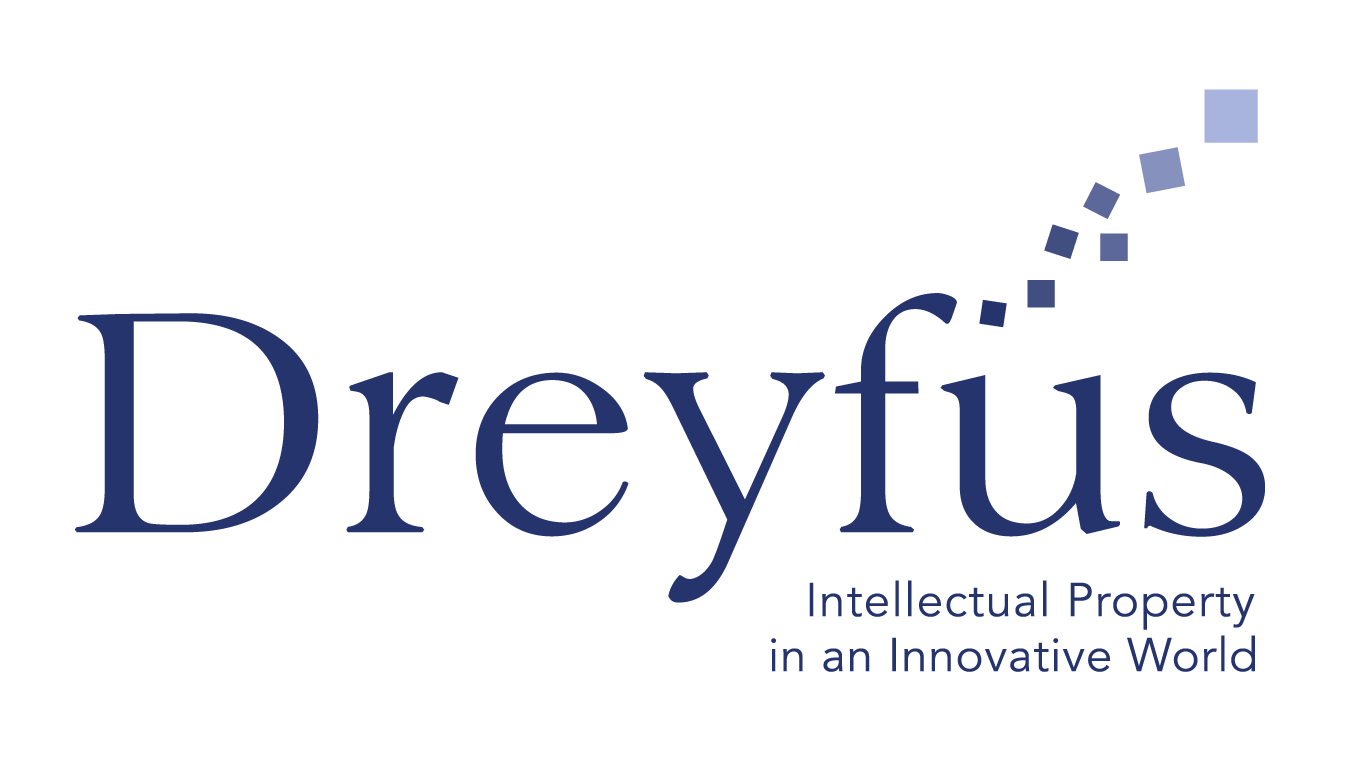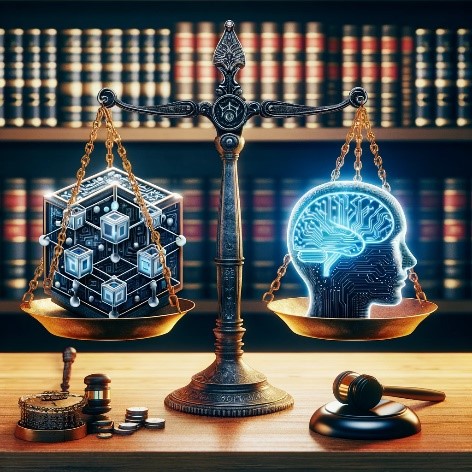Image generated by DALL E 3 Microsoft version
Navigating the intersection of cutting-edge technologies such as blockchain and artificial intelligence (AI) with established legal norms presents a complex challenge to regulatory bodies. While these innovations offer substantial improvements in terms of operational efficiency and security measures, they simultaneously introduce unique legal dilemmas. This article aims to explore the dynamics between these technological advancements and existing legislative frameworks, highlighting the necessary adaptations to ensure that intellectual property rights are adequately safeguarded in the digital age.
The Regulation of Artificial Intelligence: An Evolving Landscape
The legal framework governing Artificial Intelligence (AI) is in a state of flux, marked by the absence of cohesive legislation on one hand, and the development of new regulatory proposals on the other. This changing tide was notably underscored by the National Consultative Commission on Human Rights (CNCDH) in its April 7, 2022, opinion on the proposed regulation for AI, widely referred to as the AI Act. The proposed Act seeks to categorize AI applications based on their risk level, offering a blueprint that could guide global AI policy. This movement towards regulating AI mirrors the approach taken with the Markets in Crypto Assets (MiCA) Regulation for blockchain technology, aiming to protect the digital ecosystem while fostering responsible innovation.
Fundamental Prohibitions in Artificial Intelligence Use
The specific prohibitions on particular uses of AI, as outlined in the AI Act, underscore the European Union’s commitment to safeguarding fundamental human rights. By distinguishing between different AI applications based on their potential for harm, the Act navigates the fine line between fostering innovation and ensuring the protection of rights. Article 5 zeroes in on practices deemed high-risk and unacceptable, such as “dark patterns” that subtly manipulate behaviors or target vulnerable groups. This emphasizes the establishment of ethical boundaries to curb potential misuses of AI technology.
Enhanced Requirements for AI Providers and Users
This legislation outlines the duties of both providers and professionals who deploy high-risk AI systems, underlining the importance of rigorous safety, transparency, and data governance protocols. Specifically, Article 29 of the AI Act obligates professional users, or deployers, to verify that providers adhere to the required regulatory standards. It is imperative for all stakeholders engaged with high-risk AI to adopt suitable technical and organizational safeguards to align with regulatory expectations. This involves a meticulous approach to choosing and applying AI technologies, as well as fostering a collaborative relationship with providers to ensure compliance with prevailing norms.
As we conclude our exploration of the intricacies and regulatory responses to artificial intelligence, encapsulating both the promise and the challenges of AI technologies, we pivot towards another transformative domain. This transition guides us from the realm of AI, where ethical considerations and human rights are paramount, to the innovative landscape of blockchain technology. Here, we delve into how blockchain’s integration into the legal framework represents a parallel journey of adaptation and regulation, echoing the complexities and potential we’ve observed with AI.
Understanding Blockchain and Its Legal Framework
The integration of blockchain technology into the French legal landscape has steadily advanced, underscored by the enactment of Decree No. 2018-1226 in December 2018. This legislation highlights the technology’s capacity for creating a secure, immutable ledger, pivotal for data integrity and the traceability of financial transactions. Further legislative developments, notably the PACTE law of 2019, have laid down a legal framework for providers of digital asset services (PSAN), thereby recognizing the importance of crypto-assets within the digital economy. This recognition not only underscores the relevance of blockchain in modern regulatory contexts but also enhances the visibility of terms such as “blockchain legal framework,” “French blockchain integration,” and “digital asset regulation” in search engine optimization strategies.
Towards European Harmonization with the Markets in Crypto Assets Regulation
In an effort to create a cohesive regulatory framework across Europe, the European Council ratified the MiCA (Markets in Crypto-Assets) Regulation in April 2023, targeting the establishment of uniform standards for the issuance of crypto-assets and the operation of digital asset service providers (DASP). This regulation delineates clear responsibilities for entities in the crypto-market, including a stipulation that certain service providers, like those offering crypto-asset portfolio management and investment advisory services, must secure formal approval. These requirements are specified within the 5th section of Article L.54-10-2 in the Monetary and Financial Code.
Although MiCA provides a broad regulatory oversight, it notably does not apply to non-fungible tokens (NFTs) and some decentralized crypto services, such as utility tokens including Ether (ETH) and Binance Coin (BNB), which has sparked debate. Moreover, MiCA prioritizes consumer safety, introducing measures against money laundering and mandating that providers furnish clear and precise information about their products and services. With enforcement anticipated by the end of 2024, MiCA aims to safeguard and streamline digital financial activities, facilitating the adoption of innovative technologies and the alignment of consumer protection standards throughout the European Union.
Successfully Navigating the Digital Landscape
The convergence of blockchain technology and artificial intelligence (AI) represents an area of rapid evolution, brimming with potential yet fraught with complexities. Recent shifts in legislation and regulation seek to create a conducive environment for the responsible implementation of these advanced technologies, ensuring the protection of essential freedoms and the rights of intellectual property owners. In this dynamic and shifting terrain, businesses must prioritize strategic vision and continuous flexibility. Consulting with a knowledgeable partner such as Dreyfus.io becomes crucial for the protection and augmentation of intangible assets’ value, providing expert advice and brand defense across diverse industries.
Join us on social media !

